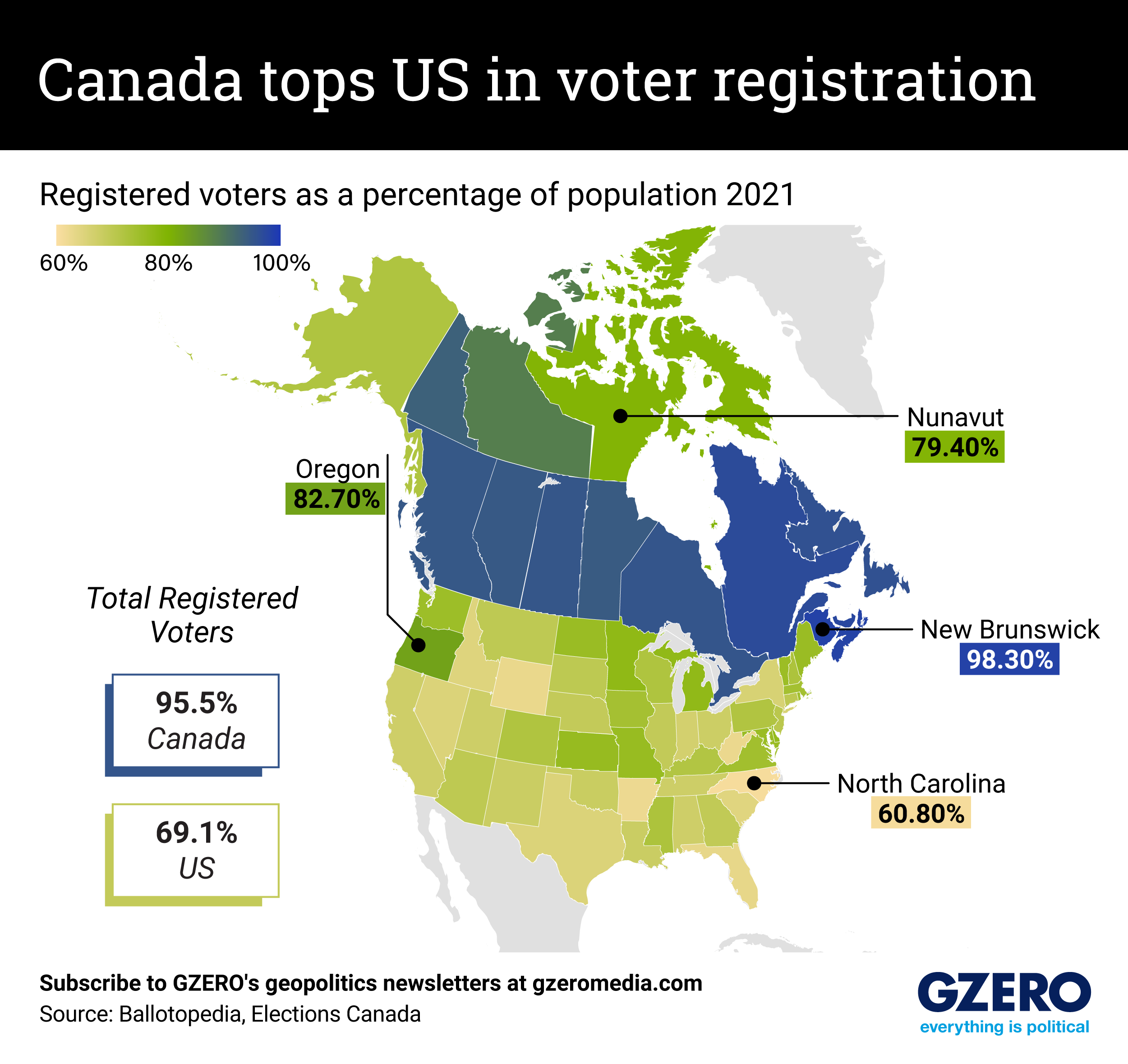The Graphic Truth: Canada tops US in voter registration
The United States and Canada are two of the world’s biggest advanced democracies. But when it comes to elections, the Great White North is far better at registering its voters.
Canada makes it easy and even encourages voters to register as late as Election Day. It can do this because it has a centralized voter database shared among the provinces, enabling them to keep up-to-date information about where voters should be voting, which eliminates fears of voter fraud.
In the US – where fears of voter fraud run rampant – the main obstacle appears to be a lack of both cooperation and willpower. There’s no push to proactively register voters, and because there’s no centralized voter registration database, there’s limited communication between states.
The US is trying to roll out a centralized system, called Electronic Registration Information Center or ERIC, to inform states if a voter moves or dies, so that the names can be removed from the voter rolls. But to gain access, states must pledge to proactively register new voters who move to their state.
At its peak, ERIC had 33 states enrolled, but since the 2020 election, it has become the target of misinformation campaigns. Seven GOP-led states have pulled out of the interstate database over concerns about voter privacy and to protest the proactive registration requirement.
